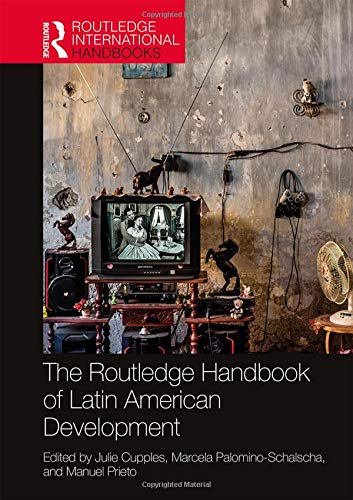

Most ebook files are in PDF format, so you can easily read them using various software such as Foxit Reader or directly on the Google Chrome browser.
Some ebook files are released by publishers in other formats such as .awz, .mobi, .epub, .fb2, etc. You may need to install specific software to read these formats on mobile/PC, such as Calibre.
Please read the tutorial at this link: https://ebookbell.com/faq
We offer FREE conversion to the popular formats you request; however, this may take some time. Therefore, right after payment, please email us, and we will try to provide the service as quickly as possible.
For some exceptional file formats or broken links (if any), please refrain from opening any disputes. Instead, email us first, and we will try to assist within a maximum of 6 hours.
EbookBell Team

4.1
50 reviewsThe Routledge Handbook of Latin American Development seeks to engage with comprehensive, contemporary, and critical theoretical debates on Latin American development. The volume draws on contributions from across the humanities and social sciences and, unlike earlier volumes of this kind, explicitly highlights the disruptions to the field being brought by a range of anti-capitalist, decolonial, feminist, and ontological intellectual contributions.
The chapters consider in depth the harms and suffering caused by various oppressive forces, as well as the creative and often revolutionary ways in which ordinary Latin Americans resist, fight back, and work to construct development defined broadly as the struggle for a better and more dignified life. The book covers many key themes including development policy and practice; neoliberalism and its aftermath; the role played by social movements in cities and rural areas; the politics of water, oil, and other environmental resources; indigenous and Afro-descendant rights; and the struggles for gender equality.
With contributions from authors working in Latin America, the US and Canada, Europe, and New Zealand at a range of universities and other organizations, the handbook is an invaluable resource for students and teachers in development studies, Latin American studies, cultural studies, human geography, anthropology, sociology, political science, and economics, as well as for activists and development practitioners.